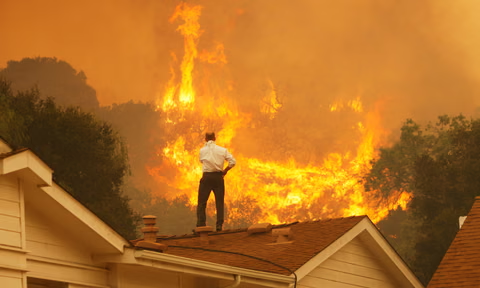The United Nations has issued a stark warning about the growing climate crisis as extreme weather events intensify across the globe. From devastating floods in Asia to wildfires in Europe and record-breaking heatwaves in North America, the evidence of accelerating climate change is undeniable. UN Secretary-General António Guterres urged nations to take immediate and decisive action, stressing that the world is running out of time to avoid irreversible damage.
Extreme Weather Events Around the World
This year has already seen a surge in climate-related disasters. In South Asia, monsoon floods have displaced millions, while Europe battles widespread wildfires that have destroyed thousands of acres of land. North America has endured unprecedented heatwaves, with temperatures breaking records in multiple states. Meanwhile, parts of Africa are facing prolonged droughts, leaving millions at risk of hunger and displacement. Scientists link these events to rising global temperatures caused by greenhouse gas emissions.
Economic Toll of the Climate Crisis
The economic consequences of extreme weather are mounting. Countries are facing billions of dollars in damages to infrastructure, agriculture, and housing. Insurance companies report soaring claims, while governments are forced to allocate emergency funds to support recovery efforts. Economists warn that without urgent climate adaptation strategies, the financial burden will only grow, potentially destabilizing vulnerable economies.
Impact on Human Health and Livelihoods
Beyond the economic costs, the climate crisis is taking a heavy toll on human health and livelihoods. Heatwaves increase the risk of heatstroke and cardiovascular illnesses, while floods and storms heighten the spread of waterborne diseases. Millions of people are being displaced, creating new waves of climate refugees. Vulnerable communities, particularly in developing nations, are disproportionately affected due to limited resources for adaptation.
Global Policy Responses and Agreements
International efforts to address climate change have gained renewed urgency. The upcoming UN Climate Summit is expected to push for stricter commitments on carbon reduction and increased funding for climate adaptation. Wealthier nations are being pressed to honor their pledges to provide financial assistance to developing countries most affected by climate change. The Paris Agreement remains the cornerstone of global climate policy, but experts argue that current pledges fall short of what is needed to meet global targets.
Advances in Renewable Energy Solutions
Despite the challenges, progress in renewable energy provides hope for the future. Investments in solar, wind, and hydroelectric power are accelerating, with many countries committing to ambitious clean energy goals. Innovations in battery storage and green hydrogen technology are helping address the intermittency challenges of renewables. Experts believe that scaling up these solutions is crucial to reducing dependence on fossil fuels and cutting greenhouse gas emissions.
Role of Public Awareness and Activism
Public awareness and activism have played a significant role in pushing climate change onto the global agenda. Grassroots movements and youth-led initiatives continue to pressure governments and corporations to act responsibly. Campaigns advocating for sustainable consumption, reforestation, and reduced emissions are gaining traction. Social media platforms have amplified these voices, fostering global solidarity in the fight against climate change.
Looking Ahead: A Narrow Window of Opportunity
While the challenges are daunting, experts emphasize that the world still has a narrow window of opportunity to mitigate the worst effects of climate change. Achieving this will require unprecedented global cooperation, bold policymaking, and rapid technological innovation. The path forward demands both immediate action and long-term commitment to sustainability.
FAQs
What is causing the increase in extreme weather events?
Rising global temperatures due to greenhouse gas emissions are intensifying storms, floods, droughts, and heatwaves worldwide.
How does climate change affect the economy?
It leads to billions of dollars in damages, higher insurance claims, and strains on government budgets for disaster recovery and adaptation.
Which regions are most affected by climate change?
Developing countries in Asia, Africa, and Latin America are among the most vulnerable due to limited resources and high exposure to natural disasters.
What role does renewable energy play in addressing climate change?
Renewables reduce dependence on fossil fuels, lower emissions, and provide sustainable energy alternatives crucial for long-term climate goals.
How can individuals contribute to combating climate change?
Individuals can reduce energy consumption, adopt sustainable lifestyles, support clean energy policies, and participate in climate activism.
Conclusion
The UN’s warning highlights the pressing need for global action as the effects of climate change intensify across every continent. Extreme weather events are no longer isolated incidents but a clear sign of systemic environmental disruption. Governments, industries, and communities must step up efforts to mitigate emissions and adapt to the realities of a changing climate.
Although the challenges are immense, solutions exist and progress is possible. By investing in renewable energy, strengthening international cooperation, and fostering public engagement, the world can still chart a sustainable path forward. The climate crisis is the defining issue of our time, and the actions taken today will determine the future of generations to come.








